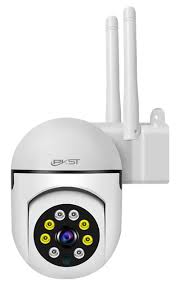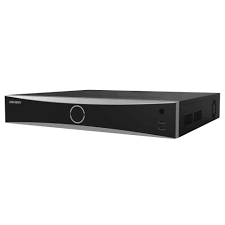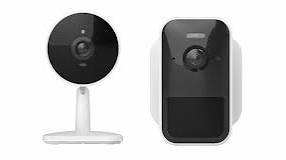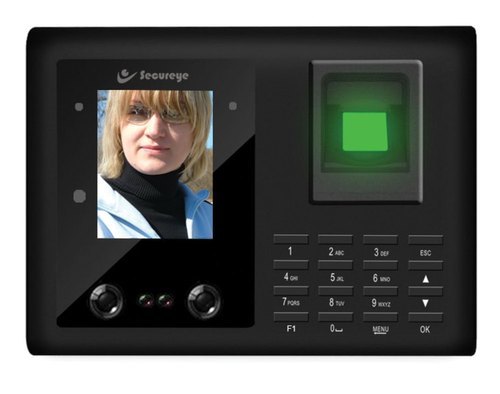Wireless IP cameras have revolutionized the way we monitor and secure our homes and businesses. These cameras offer flexibility, convenience, and advanced features that make them a popular choice for surveillance systems.
One of the key advantages of wireless IP cameras is their easy installation process. Unlike traditional wired cameras that require complicated wiring setups, wireless IP cameras can be set up quickly and without the need for extensive cabling. This makes them ideal for both indoor and outdoor use, providing users with the flexibility to place them in various locations without restrictions.
Another significant benefit of wireless IP cameras is their remote monitoring capabilities. Users can access live video feeds from their cameras using a smartphone, tablet, or computer connected to the internet. This feature allows homeowners and business owners to keep an eye on their properties in real-time, no matter where they are.
Wireless IP cameras also offer advanced security features such as motion detection, night vision, two-way audio communication, and cloud storage options. These features enhance the overall effectiveness of the surveillance system by providing users with alerts for any suspicious activity, clear footage even in low-light conditions, the ability to communicate with visitors or intruders remotely, and secure storage of video recordings off-site.
In addition to security benefits, wireless IP cameras can also serve as smart home devices by integrating with other smart home systems such as smart lights, door locks, and alarms. This integration allows users to create a comprehensive smart home security ecosystem that enhances convenience and automation.
Overall, wireless IP cameras offer a versatile and reliable solution for modern surveillance needs. With their easy installation process, remote monitoring capabilities, advanced security features, and potential for integration with smart home systems, these cameras provide users with peace of mind and enhanced security for their properties.
Top 8 Advantages of Wireless IP Cameras: Easy Setup, Remote Access, and Enhanced Security Features
- Easy installation without the need for extensive wiring
- Flexibility to place the camera in various locations indoors and outdoors
- Remote monitoring capability via smartphone, tablet, or computer
- Advanced security features like motion detection and night vision
- Two-way audio communication for interactive surveillance
- Cloud storage options for secure off-site video recordings
- Integration with smart home systems for enhanced automation and convenience
- Real-time alerts for suspicious activity to improve overall security
Key Drawbacks of Wireless IP Cameras: Wi-Fi Reliance, Security Risks, Battery Limitations, and Higher Costs
- Dependence on Wi-Fi signal strength
- Potential security vulnerabilities
- Limited battery life for battery-powered models
- Higher initial cost compared to wired cameras
Easy installation without the need for extensive wiring
The ease of installation without the need for extensive wiring is a standout advantage of wireless IP cameras. Unlike traditional wired cameras that require complex and time-consuming wiring setups, wireless IP cameras can be set up quickly and effortlessly. This feature not only saves time and effort but also provides users with the flexibility to install the cameras in various locations without being limited by wiring constraints. The simple installation process of wireless IP cameras makes them a convenient and practical choice for both residential and commercial surveillance needs.
Flexibility to place the camera in various locations indoors and outdoors
The flexibility offered by wireless IP cameras to place the camera in various locations indoors and outdoors is a significant advantage. Unlike traditional wired cameras that are limited by cable length and placement options, wireless IP cameras can be easily positioned wherever needed without the constraints of wiring. This flexibility allows users to strategically place the cameras in optimal locations to maximize coverage and surveillance effectiveness, ensuring comprehensive monitoring of both indoor and outdoor spaces with ease.
Remote monitoring capability via smartphone, tablet, or computer
The remote monitoring capability of wireless IP cameras via smartphone, tablet, or computer is a game-changer in the world of surveillance. This feature allows users to keep a watchful eye on their properties in real-time from anywhere with an internet connection. Whether you are at work, traveling, or simply away from home, being able to access live video feeds and receive alerts on your mobile device provides a sense of security and peace of mind like never before. The convenience and flexibility offered by remote monitoring make wireless IP cameras an essential tool for modern home and business security systems.
Advanced security features like motion detection and night vision
The advanced security features of wireless IP cameras, such as motion detection and night vision capabilities, enhance the overall effectiveness of surveillance systems. Motion detection technology allows the camera to detect any movement within its field of view and send alerts to users, providing timely notifications of potential intrusions or suspicious activities. Additionally, the night vision feature enables the camera to capture clear footage even in low-light or nighttime conditions, ensuring continuous monitoring and surveillance around the clock. These advanced features significantly improve the security level provided by wireless IP cameras, making them a reliable choice for home and business security needs.
Two-way audio communication for interactive surveillance
Wireless IP cameras with two-way audio communication feature offer an interactive surveillance experience that enhances security and convenience. This pro allows users to not only see and hear what is happening in real-time but also communicate with individuals on the other end. Whether it’s providing instructions to delivery personnel, warning off intruders, or simply checking in on loved ones, the two-way audio feature adds a new dimension to surveillance by enabling seamless and immediate interaction from anywhere with an internet connection. This capability makes wireless IP cameras with two-way audio communication a valuable tool for monitoring and managing security situations effectively.
Cloud storage options for secure off-site video recordings
Cloud storage options for secure off-site video recordings is a significant advantage of wireless IP cameras. This feature ensures that video footage captured by the camera is securely stored in the cloud, away from the physical camera location. In the event of theft, damage, or tampering with the camera, the recorded video data remains safe and accessible for review and evidence purposes. Cloud storage also provides users with the convenience of accessing their video recordings from anywhere with an internet connection, offering peace of mind and added security to their surveillance system.
Integration with smart home systems for enhanced automation and convenience
The integration of wireless IP cameras with smart home systems brings a new level of automation and convenience to modern households. By connecting these cameras to other smart devices like lights, door locks, and alarms, users can create a seamless ecosystem that enhances security and simplifies daily routines. For example, when the wireless IP camera detects motion outside the front door, it can trigger the smart lights to turn on automatically or send an alert to the homeowner’s smartphone. This integration not only improves home security but also streamlines tasks and provides users with greater control over their living environment, making everyday life more convenient and efficient.
Real-time alerts for suspicious activity to improve overall security
Real-time alerts for suspicious activity provided by wireless IP cameras significantly enhance overall security measures. With the ability to instantly notify users of any detected motion or unusual events, these alerts enable prompt action to be taken in response to potential threats. Whether it’s detecting an intruder, a package delivery, or even a pet wandering into a restricted area, receiving immediate notifications allows users to stay vigilant and address security concerns in a timely manner. This proactive approach not only helps prevent incidents but also provides peace of mind by keeping homeowners and business owners informed and in control of their surroundings at all times.
Dependence on Wi-Fi signal strength
One significant drawback of wireless IP cameras is their dependence on Wi-Fi signal strength. The stability and performance of these cameras are heavily reliant on a consistent and strong Wi-Fi connection, which can be vulnerable to signal interference or range limitations. Factors such as physical obstacles, electronic devices, or even the distance between the camera and the Wi-Fi router can impact the quality of the connection, leading to potential disruptions in video streaming or delays in receiving alerts. This reliance on Wi-Fi signal strength introduces a level of uncertainty and potential vulnerability to the overall effectiveness of wireless IP camera systems, especially in environments where maintaining a strong and stable Wi-Fi connection may be challenging.
Potential security vulnerabilities
One significant con of wireless IP cameras is the potential security vulnerabilities they pose. The wireless transmission of video feeds may be susceptible to hacking or unauthorized access if not properly secured. Without robust encryption protocols and secure network configurations, hackers can intercept the video feeds, compromising the privacy and security of the monitored area. This risk highlights the importance of implementing strong password protection, using encryption technologies, keeping camera firmware up to date, and regularly monitoring network activity to prevent unauthorized access to wireless IP cameras.
Limited battery life for battery-powered models
One notable drawback of some wireless IP cameras is the limited battery life found in battery-powered models. While the wireless nature of these cameras offers flexibility in terms of placement, the need for batteries to power them can be a concern. Users of battery-powered wireless IP cameras may find themselves needing to recharge or replace batteries frequently, which can be inconvenient and potentially disrupt surveillance monitoring. This limitation can be particularly problematic in outdoor settings where access to power sources may be limited, requiring users to plan for regular maintenance to ensure continuous operation of their security system.
Higher initial cost compared to wired cameras
One of the drawbacks of wireless IP cameras is their higher initial cost compared to wired cameras. The advanced features and technology integrated into wireless IP cameras contribute to their elevated price point. While the benefits of wireless connectivity and remote monitoring are appealing, the upfront investment required for these cameras may deter budget-conscious consumers. Despite the higher initial cost, many users find that the convenience and flexibility offered by wireless IP cameras ultimately justify the expense in terms of enhanced security and ease of use.




